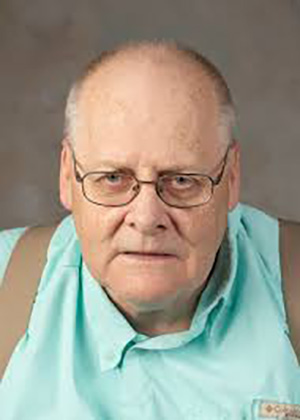By Greg Markley
I do not come from a family of frequent flyers. Air travel was rarer and costlier in the 1960s and 1970s when I was a child. A brother and my sister never flew. Neither did my mother. My father rode planes in WWII, in the Army Air Corps. Another brother traveled in the Army to and from Vietnam and later on vacations. My first flight came courtesy of American taxpayers.
On July 5, 1980, I took Delta from Providence, Rhode Island to Atlanta. Opened in 1925 as Candler Field, the airport had expanded immensely by mid-1980. It was called “the world’s largest terminal complex,” designed to handle 55 million passengers a year. I believed this airport could handle millions of passengers. And, I thought South Carolina would be no more humid than coastal Rhode Island in the summer. On that, I was wrong.
Little would I know then that I would spend a lot of time at this airport, especially as I lived in Atlanta from 1984-1988. For Christmas seasons, I was a monitor to keep an eye on trainees from Fort Benning and elsewhere. Not only was the USO open but Delta and Eastern Airlines had “hospitality rooms” where military personnel could get cookies and refreshments.
As a sergeant, I had monitoring duty with a master sergeant. He showed up without his nametag, and I was horrified. Our work at the airport was to tell junior soldiers there was no need to sleep on a chair, ruining their dress uniforms. We should at least set the example. If a soldier was talking to a solicitor, for charities or subscriptions, we could not intervene. This was the era of Lyndon LaRouche, cult leader later convicted of fraud.
Before smoking on domestic airlines was outlawed, I had a boss who loved to smoke, so I assumed he would go to the rear of the plane that was leaving Hartsfield. But no, he said, “I don’t to get stuck in the back of the plane when it arrives in Washington, DC.” I will just sit here in the front for an hour and a half without a cigarette, I can handle that.
By the time the plane landed, my boss was ready to get his luggage and skip over any obstacles on his way out, reminiscent of a 1978 Hertz ad featuring O.J. Simpson. Many flyers today may not recall that smoking was allowed for a while, but on Feb. 25, 1990 that ended. Smoking on almost all domestic flights was banned by federal law. It was a major move for supporters of improved public health by cutting smoking and “second hand smoke.”
In 1984, I was in my first winter in Atlanta, so I just wore a pair of short pants and t-shirt on an Air Florida flight from Central America. I was surprised that it was nearly freezing (perhaps 33-37 degrees) when I arrived at the airport parking lot. Unfortunately, I forgot where I parked, having misplaced the ticket stub a week before. I started looking for my Isuzu hatchback.
After not locating the car, in the cold weather, I asked a security guard for a ride around, and I found my car quickly. Before getting in, I asked: “Sir, do you know how many car spaces there are in this airport?” He pondered and said, “About 40,000.” Without the ride, I would have been there many hours in my light clothing amid February cold in my new home in the South.
I sometimes ask airplane passengers, even those who travel thru the Atlanta International Airport a lot, who the facility is named for. Many are not even curious but some are. It was first named for William B. Hartsfield, a mayor of Atlanta who founded the airport and became its commissioner. He was mayor for 24 years, longer than anyone. Even in the 1950s, he was moderate on civil rights. In 1957, he defeated the segregationist Lester Maddox.
Maynard Jackson Jr. was elected in 1973 at age 35 as the first black mayor of Atlanta. He served three terms and is noted for public works projects, especially with the International terminal that carries his name. Ironically, he suffered a cardiac arrest at another airport, Ronald Reagan Washington National Airport and later died at a Virginia hospital, in 2003.
In less than 10 years, I may celebrate my 50th Anniversary at the Atlanta Airport. I would be 74 years old. This relationship has brought me great memories, both on trips emanating from the airport and on the lively and character-rich concourses. A number of patrons don’t like this airport, or even any airport, because they don’t like anything that interferes with their “digital caves” (electronic devices). Some avoid talking to any new people. That’s their problem.
You see so many harried, angry people at airports these days that the fun of flying of years past is nowhere evident. As my time at Hartsfield-Jackson dwindles with age, I may adapt the classic poem by Welsh poet Dylan Thomas. “Do not go gentle into that good night, Old age should burn and rave at close of day; Rage, rage against the cancellation of my flight.”
Greg Markley first moved to Lee County in 1996. He has Masters’ in education and history. He taught politics as an adjunct in Georgia and Alabama. An award-winning writer in the Army and civilian life, he has contributed to the Observer for 8 years. Greg can be reached by email at gm.markley@charter.net.

